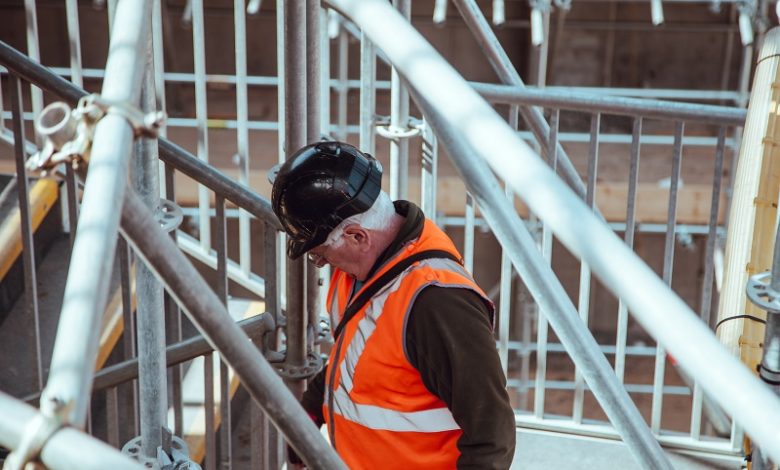5 Biggest Problems of the Construction Industry and How to Deal with Them?

The construction industry is one of the largest sectors providing support to the UAE economy, in terms of profit and employment. The construction industry is getting significant growth across the globe and is expected to expand by 4% from 2022 to 2025. This industry accounts for approximately 55% of global output. Besides achieving nonstop growth, the construction industry is also facing challenges.
From slow adoption of the latest technology to communication problems, poor scheduling, bad documentation management, no in-depth knowledge of construction claims, and dispute avoidance, there are a number of issues the construction industry is facing. Therefore, it is important to prepare yourself to deal with all the possible challenges and successfully complete construction projects.
Have a look at the 5 biggest issues in the construction industry and the solutions to deal with them and deliver powerful results.
-
Slow Technology Adoption
This is one of the biggest challenges the construction businesses face which needs to be resolved to help construction businesses maximize productivity and speed up the process. Many construction businesses are not taking initiative and harnessing the power of the latest technologies to make significant improvements in construction projects. As a result, failure to adopt the latest technology makes the construction industry the second least digitized sector across the globe.
Technology, if used well, can make construction sites safer and allows construction businesses to increase employee productivity. Harnessing the power of construction technology will help you tackle complex projects easily. This includes innovative tools, machinery, software solutions, mobile apps, virtual reality, and 3D-printed buildings.
-
Poor Schedule Management
There is no denying that construction projects are very difficult and usually don’t meet deadlines due to unforeseen situations. If not properly managed, it will lead to project failure. Whether you are building a shopping mall or a single-story residence; a well-thought schedule is needed for the timely completion of a construction project. From resource management to equipment management, a robust construction schedule is the foundation of successful project management.
Creating a construction schedule is time-consuming and needs time management skills and technical knowledge. However, a solid plan can make it easier to manage resources throughout the life cycle of a project. You can leverage a wide array of tools and methodologies to control the cost, scope, time, and quality of the project. Keeping a variety of constraints related to design, architecture, engineering, and construction site in mind can help you establish a construction schedule that fulfills project milestones.
-
Poor Construction Claims Management
It is technically impossible for construction projects to complete on time without having any issues. However, when a dispute arises, the blame game begins. We hardly see a single party ready to take the responsibility for the damage or missed deadline. There are a number of reasons that cause disputes and claims on construction projects. For example, labor, architect-related delays, weather delays, site congestion, limited site access, unplanned disruptions, and lack of coordination are the most common causes of construction claims. Good record keeping is the best construction claim prevention strategy. However, taking help from quantum experts that provide construction claim consulting services is a sensible approach.
-
Failure to Communicate
Lack of communication is one of the biggest reasons why construction projects fail. Especially, lack of communication between stakeholders, contractors, project owners, and project managers leads to mishandling, delays, accidents, construction claims, and unhappy clients. Therefore, keeping everyone on the same page and establishing effective communication is the best dispute avoidance strategy that prevents a construction project from failing.
Create a communication plan by using the standard document control procedures, tools, and software. This is important for making sure that all information is documented and shared with the team members. From invoices to meeting minutes, daily reports, change orders, and approvals, all correspondence should be made via proper channel – email, or project management tool. It goes a long way in settling any construction claim or disagreement that might occur during the entire project lifecycle.
-
Poorly Maintained Machinery
Operating and maintaining heavy machinery is the biggest challenge for a construction company. It requires millions of dollars to purchase the equipment and repair and maintain construction equipment. As a result, it is important to regularly maintain the machinery to protect your investment and ensure on-time project delivery.
An effective equipment maintenance plan can prevent machine failure and extend the longevity of the equipment. From safety inspection to pressure tests, checking engine coolant levels to replacing deteriorating parts, effective equipment maintenance helps avoid breakdowns.
Keeping a close eye on equipment is a cost-saving approach that reduces the cost of heavy machinery repair. As a result, it also serves to lower the chances of sudden component failure or environmental hazards.
Concluding Note
The construction industry is facing many problems; the issues discussed in this post are prominent in recent years. In conclusion, construction companies should take necessary steps to deal with these issues and deliver successful projects.




